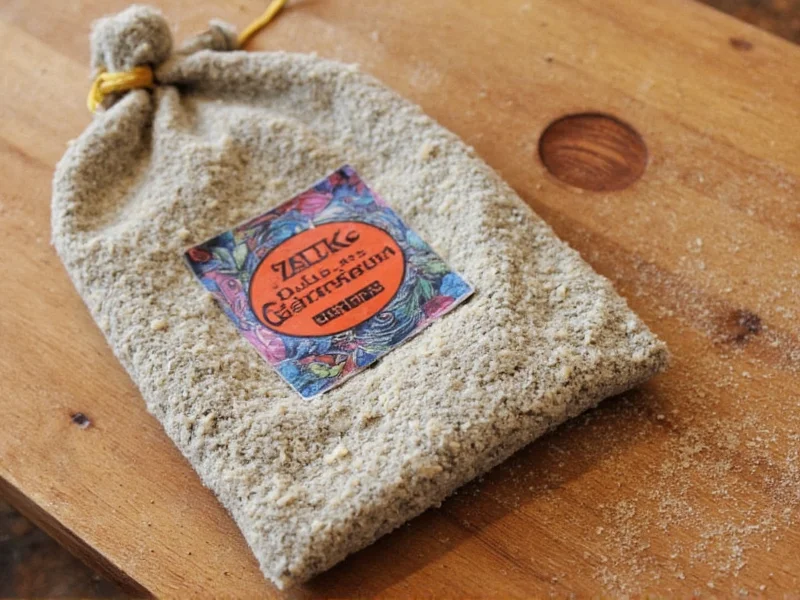Dukkah (pronounced "doe-kah") represents one of the Middle East's most beloved culinary treasures—a simple yet sophisticated spice blend that transforms ordinary meals into extraordinary experiences. This versatile condiment has journeyed from Egyptian kitchen tables to gourmet restaurants worldwide, captivating food enthusiasts with its perfect balance of nutty richness and aromatic spices.
Ancient Origins of Dukkah
Historical evidence suggests dukkah originated in ancient Egypt, where laborers reportedly consumed nut and seed mixtures for sustained energy. The name "dukkah" derives from the Arabic word "daqa," meaning "to pound" or "to crush," reflecting the traditional preparation method. While Egypt claims dukkah as its culinary heritage, variations of this spice blend appear across Middle Eastern and Mediterranean cultures, each region adding distinctive local ingredients.
Traditional Dukkah Ingredients
Authentic dukkah maintains a remarkably simple ingredient list while allowing for regional variations. The core components include:
| Primary Ingredients | Secondary Spices | Regional Variations |
|---|---|---|
| Nuts (hazelnuts, pistachios, or almonds) | Coriander | Egypt: Primarily hazelnuts |
| Sesame seeds | Cumin | Lebanon: More herbs |
| Pumpkin seeds (common in modern versions) | Peppercorns | Greece: Additional oregano |
| Salt | Australia: Macadamia nuts |
The magic of dukkah lies in the careful toasting and grinding process that releases essential oils and creates its signature aroma. Traditional preparation involves dry-toasting each component separately before combining them in specific ratios. The final texture should be coarse—not a fine powder—to preserve that essential crunch.
How to Use Dukkah in Modern Cooking
While Egyptians traditionally dip bread into olive oil then dukkah, contemporary chefs have expanded its applications significantly. Consider these creative uses for what is dukkah beyond the classic bread dip:
- Protein crust: Press dukkah onto fish fillets or chicken breasts before searing
- Salad topper: Sprinkle over roasted vegetables or grain salads
- Yogurt enhancement: Mix with Greek yogurt for a flavorful dip
- Marinade component: Combine with olive oil for meat or vegetable marinades
- Breakfast boost: Sprinkle over avocado toast or scrambled eggs
Chefs particularly value dukkah for its ability to add complex flavor without overwhelming heat—making it accessible to those who prefer milder spice profiles while still delivering culinary sophistication.
Homemade Dukkah vs Store-Bought
While commercial dukkah offers convenience, homemade versions provide superior freshness and customization. The difference between authentic dukkah and mass-produced versions often comes down to ingredient quality and preparation method.
When making dukkah at home, toast each component separately in a dry skillet over medium heat until fragrant—nuts should be golden, seeds slightly puffed. Cool completely before grinding to a coarse texture in a food processor (about 10 pulses). Store in an airtight container away from light for up to two months, though flavor peaks within the first two weeks.
For those seeking traditional Egyptian dukkah recipe proportions, a classic ratio combines 1 cup nuts, 1/2 cup sesame seeds, 2 tablespoons coriander, 1 tablespoon cumin, and 1 teaspoon sea salt. Adjust spice levels to personal preference—some prefer additional black pepper for subtle heat.
Nutritional Benefits of Dukkah
Beyond its culinary appeal, dukkah offers notable nutritional advantages. The combination of nuts and seeds provides healthy fats, protein, and fiber. Sesame seeds contribute calcium and magnesium, while spices like cumin aid digestion. Unlike many commercial seasoning blends, authentic dukkah contains no preservatives or artificial ingredients—making it an excellent choice for health-conscious cooks exploring Middle Eastern spice mix options.
Finding Authentic Dukkah
When searching where to buy authentic dukkah, specialty Middle Eastern markets typically offer the freshest options. Look for blends with visible nut and seed pieces rather than fine powders. The aroma should be immediately noticeable—fresh dukkah emits a warm, nutty fragrance that deteriorates quickly in pre-ground versions.
For those unable to find quality dukkah locally, reputable online retailers specializing in Middle Eastern ingredients provide reliable alternatives. When evaluating homemade dukkah vs store-bought options, remember that freshness dramatically impacts flavor—small-batch artisanal producers often yield superior results compared to mass-market brands.











 浙公网安备
33010002000092号
浙公网安备
33010002000092号 浙B2-20120091-4
浙B2-20120091-4